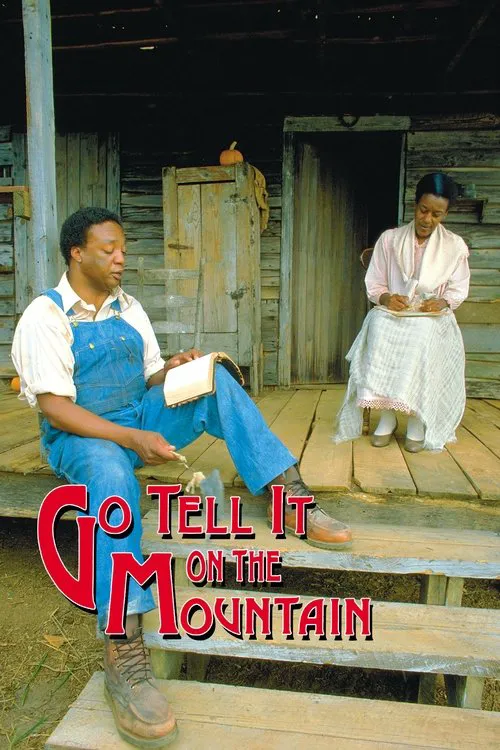Go Tell It on the Mountain

Plot
In the film adaptation of James Baldwin's poignant novel, 'Go Tell It on the Mountain,' the lives of the Grimes family intertwine in a complex tapestry of love, loss, and spirituality as they navigate the challenging landscape of 1930s America. The story delves into the struggles of a young boy, John Grimes, who embarks on a journey of self-discovery and spiritual exploration, seeking to reconcile the disparate influences of his upbringing and earn the approval of a formidable and often unyielding stepfather. The narrative commences in the idyllic rural South, where the Grimes family resides. Here, John Grimes inhabits a world defined by the strict moral codes and fervent Christianity of his father, Gabriel, and stepfather, Richard. Gabriel, a proud man with a deep-seated sense of spirituality, exerts an overwhelming influence on John's formative years, imparting the importance of adhering to Christian values and respecting the authority of elders. This imposing presence serves as a constant reminder of John's place in the world, rendering him hesitant to challenge the status quo and assert his individuality. As the story unfolds, the Grimes family is uprooted from their rural homeland and transplanted to the urban jungle of Harlem. This seismic shift marks a transformative period in the lives of its characters, particularly John, who must confront the stark realities of city life. The vibrant, cosmopolitan energy of Harlem creates a sense of disorientation and disillusionment in John, forcing him to re-evaluate his faith and the rigid moral codes that have governed his life until now. In contrast to the staid, rural world he left behind, Harlem represents a world of raw emotion, unbridled passion, and unflinching reality. The urban landscape is characterized by a kaleidoscope of contrasting experiences – from the boisterous, carefree spirit of the jazz clubs to the sobering, often harsh realities of poverty and social inequality. This dichotomy leaves John grappling with conflicting emotions and ideas, as he tries to reconcile the competing demands of his faith and the allure of the city. At the epicenter of this turmoil lies the complex figure of Richard, John's stepfather, a self-righteous individual consumed by a zealous adherence to Christianity. Richard's actions and decisions are guided by a conviction that he has a divine mandate to mold John in his own image, imbuing the young boy with the strict moral code he believes will assure his salvation. Richard's unyielding stance on the matters of faith and family is characterized by a harsh, unforgiving tone, which often leaves John feeling belittled and unloved. As John navigates this treacherous landscape, he begins to question the authority of those who claim to possess absolute truth. He finds solace in the words of his mother, Elizabeth, a kind and compassionate woman who represents a source of comfort and understanding in an often brutal world. Through her gentle guidance, John starts to forge his own path, slowly extricating himself from the suffocating grip of his stepfather's influence. In the film, the Grimes family's journey serves as a poignant metaphor for the universal human quest for meaning and belonging. As they stumble through the uncharted territories of the city, they confront the very essence of their existence – questions about the nature of love, redemption, and spirituality. In the end, it is John's ability to break free from the restrictive patterns of his upbringing that allows him to discover a path towards self-discovery, spiritual growth, and a deeper understanding of his place in the world. Through its nuanced exploration of the human condition, 'Go Tell It on the Mountain' offers a powerful testament to the resilience of the human spirit and the enduring power of the search for truth and understanding. The film's poignant portrayal of a young boy's struggle to claim his identity reminds us that the search for redemption and self-discovery is an ongoing journey we all undertake, and that it is through embracing our individual experiences and perspectives that we may find true meaning and connection in a complex and often unforgiving world.
Reviews
Recommendations



